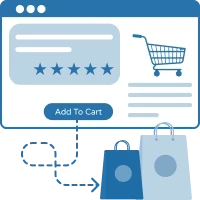12 August 2025
2580
9 min
5.00
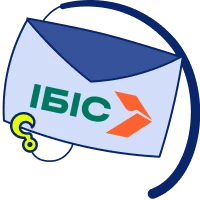
How Product Recommendations in Promotional Emails Increased Revenue by 96% for the Largest Online Retailer of Outdoor Products
| Challenge |
Increase the campaign effectiveness with personalization |
| Solution |
Add a block with product recommendations to emails |
|
CR in emails with recommendations increased by 17% The number of purchases increased by 52.38% Revenue increased by 96.35% The average check increased by 22.6% |
|
| Period |
Integration work: 2-3 weeks |
| Resources |
Marketing agency and Yespo integration team IBIS team |
| Audience |
140,000 contacts, including active 39% |
When creating email campaigns, it’s easy to overlook one crucial thing: users don’t want to waste time choosing from dozens of options.
What matters to them is quickly finding what meets their needs. In segments with a broad product range, personalization becomes a key tool to reduce cognitive load and focus the user’s attention on truly relevant offers.
This case study shows how personalized product selections increased the value of mass email campaigns—making the communication more precise and the user’s decision-making more straightforward.
Next, we’ll discuss the practical solutions that enabled IBIS to turn a mass mailing into a source of double revenue.
About the Project
ІBIS is one of the largest online retailers of outdoor products in Ukraine. Its catalog includes firearms, fishing gear, outdoor equipment, and accessories. Founded in 1994, the company combines a network of offline stores with a digital platform, serving a diverse customer base—from hunters to travelers.
IBIS is also an active promoter of shooting culture, creating educational content in collaboration with professional instructors and athletes.
The company operates a modern shooting club in Kyiv with the country’s most extensive rental firearms collection. This fishing service center supports top global brands and a gunsmith workshop offering over 400 services.
Challenge
The IBIS online store features a wide product range and a diverse audience.
The team set out to:
- make promotional emails more personalized;
- re-engage subscribers who previously hadn’t interacted with emails;
- increase email-to-purchase conversion rates;
- boost average revenue per email.
Solution
Setting Up a Product Recommendation Algorithm
At the start of implementation, the team faced an unusual technical challenge. The company website operates across two separate domains: one for fishing and outdoor gear, the other for hunting and firearms. Customers can switch between them using a toggle, but these are two distinct environments from a web tracking perspective.
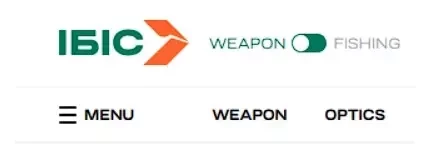
How the system works: a web tracking script collects user behavior data and links it to contacts in the database. Based on this information, an AI algorithm generates relevant product selections according to predefined rules—taking into account user interests, browsing history, past purchases, and more.
What was the challenge: the tracking script had to be implemented on both domains for personalized recommendations to function correctly. However:
-
the cookie that tracks user behavior is created separately for each domain;
-
this cookie is key to personalization, so there were issues with user identification and duplicate contacts without unifying it.
Thanks to the Yespo CDP, all behavioral data collected across both domains is merged into a single customer profile. This allows for accurate subscriber identification regardless of their navigation path—enabling a seamless, consistent personalization experience.
Want to have customer data from all communication channels?
Solution: Together with Yespo’s technical support, the team configured a unified cookie that works across both domains.
This made it possible to:
-
avoid duplicate contacts in the database;
-
consolidate a single behavioral history for each user;
-
ensure stable performance of recommendations, regardless of which domain the visitor is browsing.
Additional Settings for Recommendations
IBIS places a strong focus on segmentation. The entire contact base is divided into three primary interest groups:
-
anglers;
-
hunters;
-
outdoor enthusiasts.
Promotional emails are crafted separately for each category, considering the specifics of the products and users’ behavioral interests.
To ensure maximum relevance, distinct recommendation logic was configured for each segment. The promo emails use the “Bestsellers” algorithm, which selects up to three of the most popular items in the corresponding category.
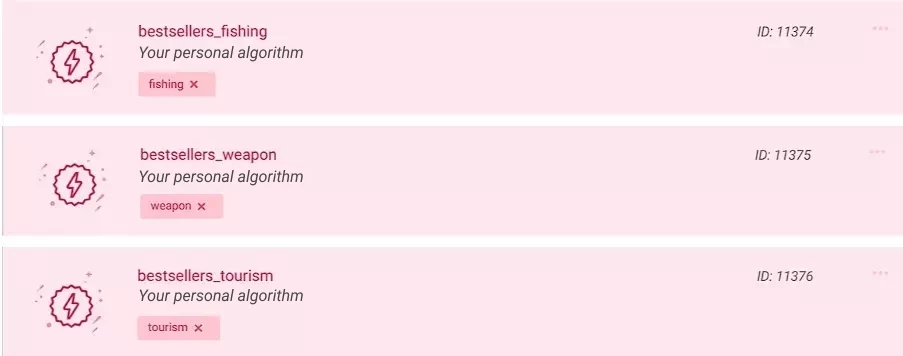
Thanks to this approach, each user sees a selection that matches their interests: nothing superfluous, only what they might be interested in.
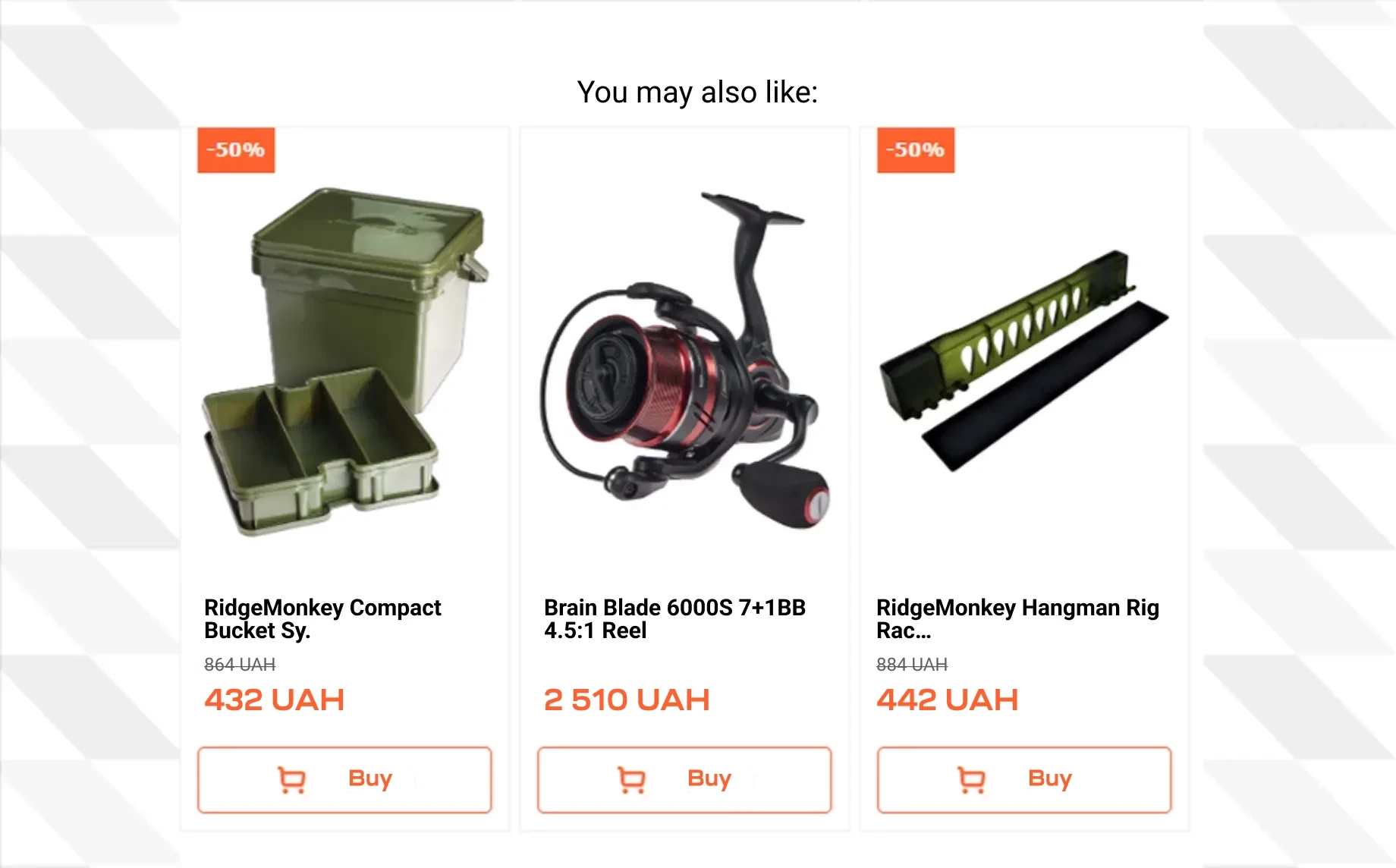
Testing Recommendation Blocks in Mass Emails
The IBIS team ran a one-month A/B test to evaluate how the product recommendation block impacts the performance of promotional emails.
The audience was split into two groups:
-
Group A received emails with personalized product recommendations;
-
Group B received identical emails, but without the recommendation block.
Both versions included a banner, main copy, and a section with six promotional products. The emails with personalized recommendations also featured an additional “You might also like” section—automatically generated by Yespo’s algorithms.
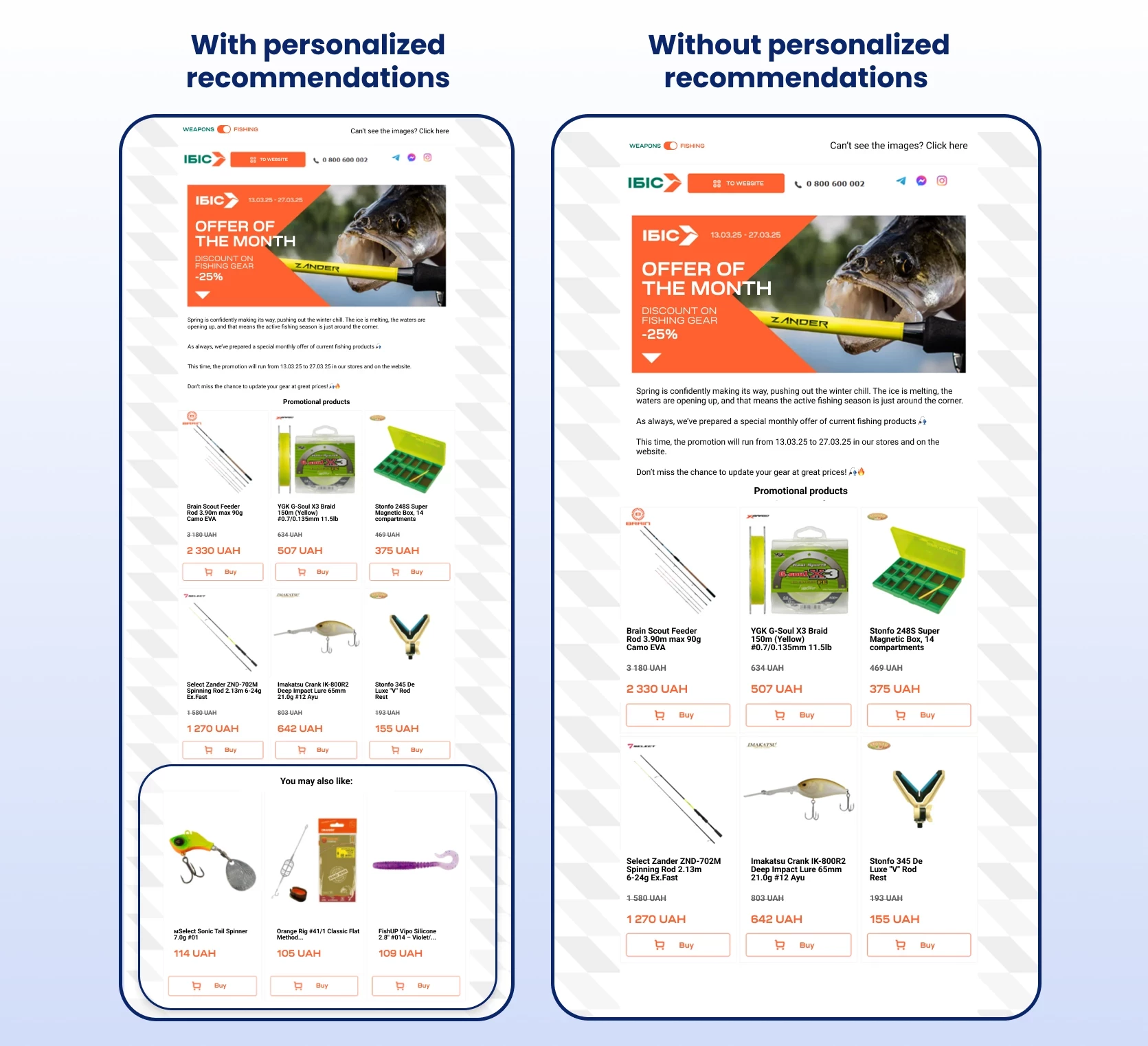
The test showed that adding a product recommendation block increased engagement. In the test group, the click rate (CR) reached 2.06%, compared to 1.76% in the control group, representing a 17% increase in click-through rate compared to emails without recommendations.
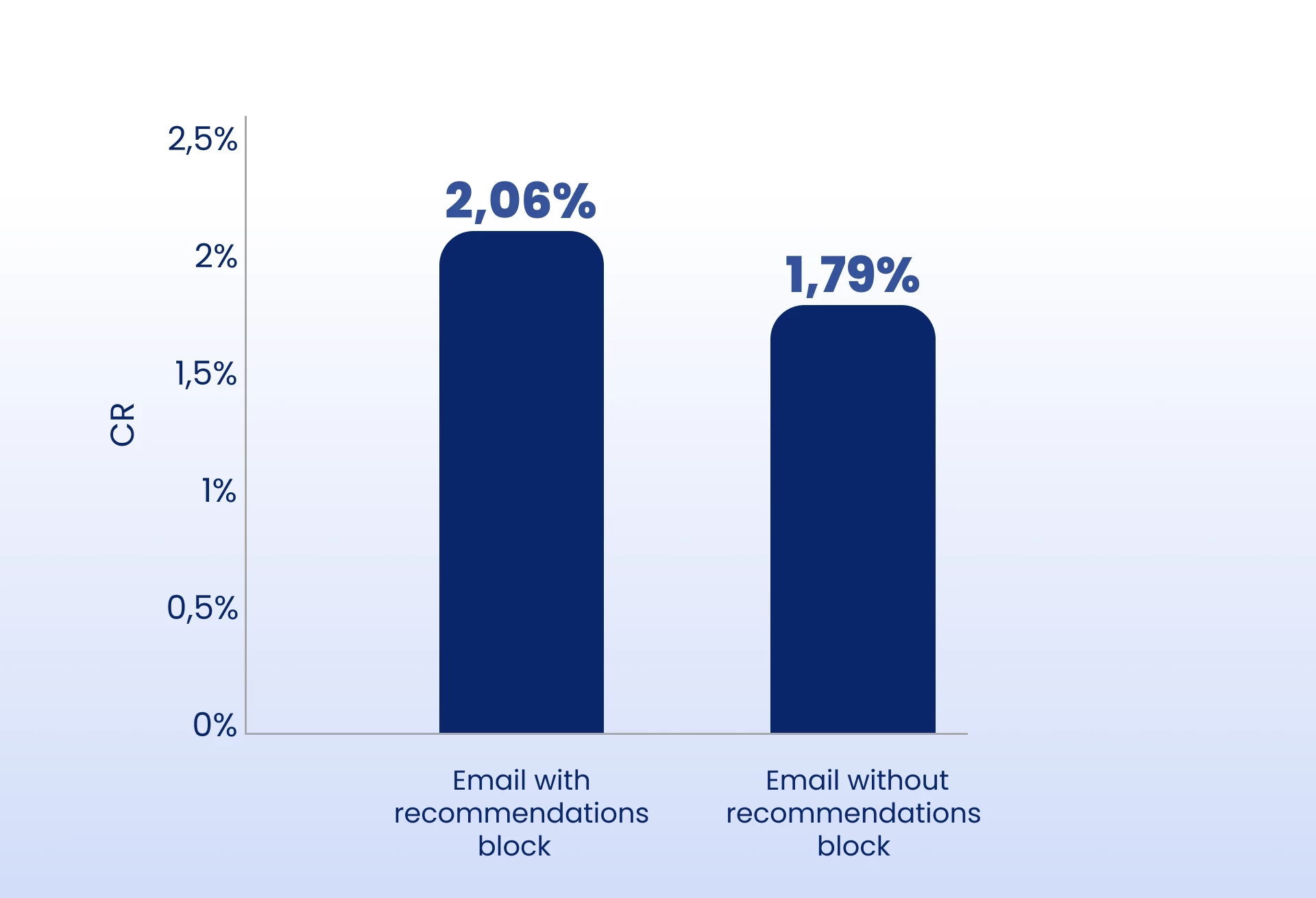
The number of purchases in the group with recommendations was 52.38% higher than in emails without. Personalized selections don’t just attract attention—they help users make purchase decisions faster. This is especially relevant for niches with a wide assortment, as recommendations shorten the path from interest to action.
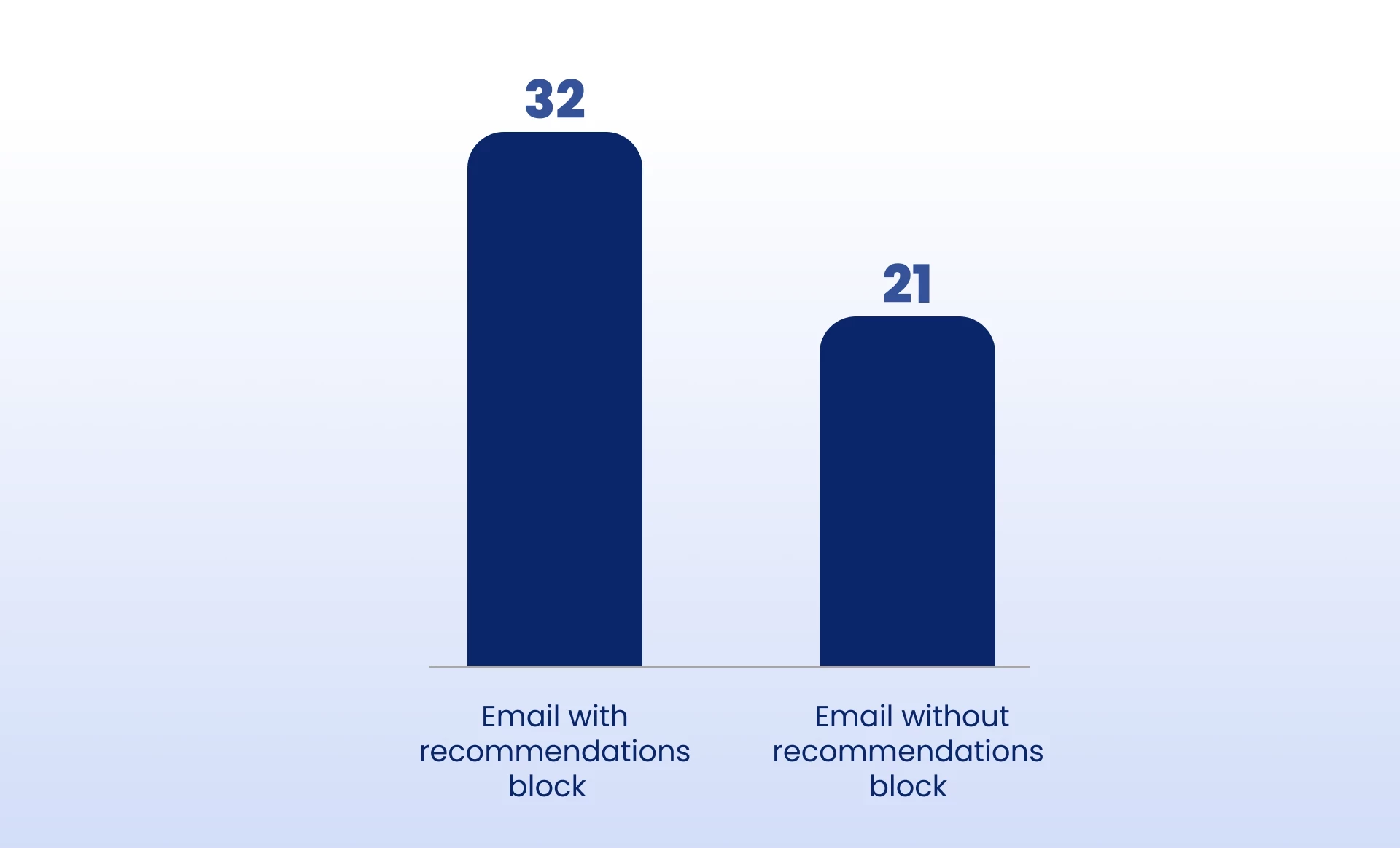
Want to shorten the path to purchase for every subscriber?
Another metric we analyzed was the average order value from the emails. It was 22.66% higher in emails with recommendations than those without the recommendation block.
This means that personalized content affects the number of purchases and their value. Users who see a product selection tailored to their interests are more likely to choose higher-priced items or add multiple products to the cart instead of just one. Recommendations stimulate conversions and more valuable orders—all without additional advertising costs.
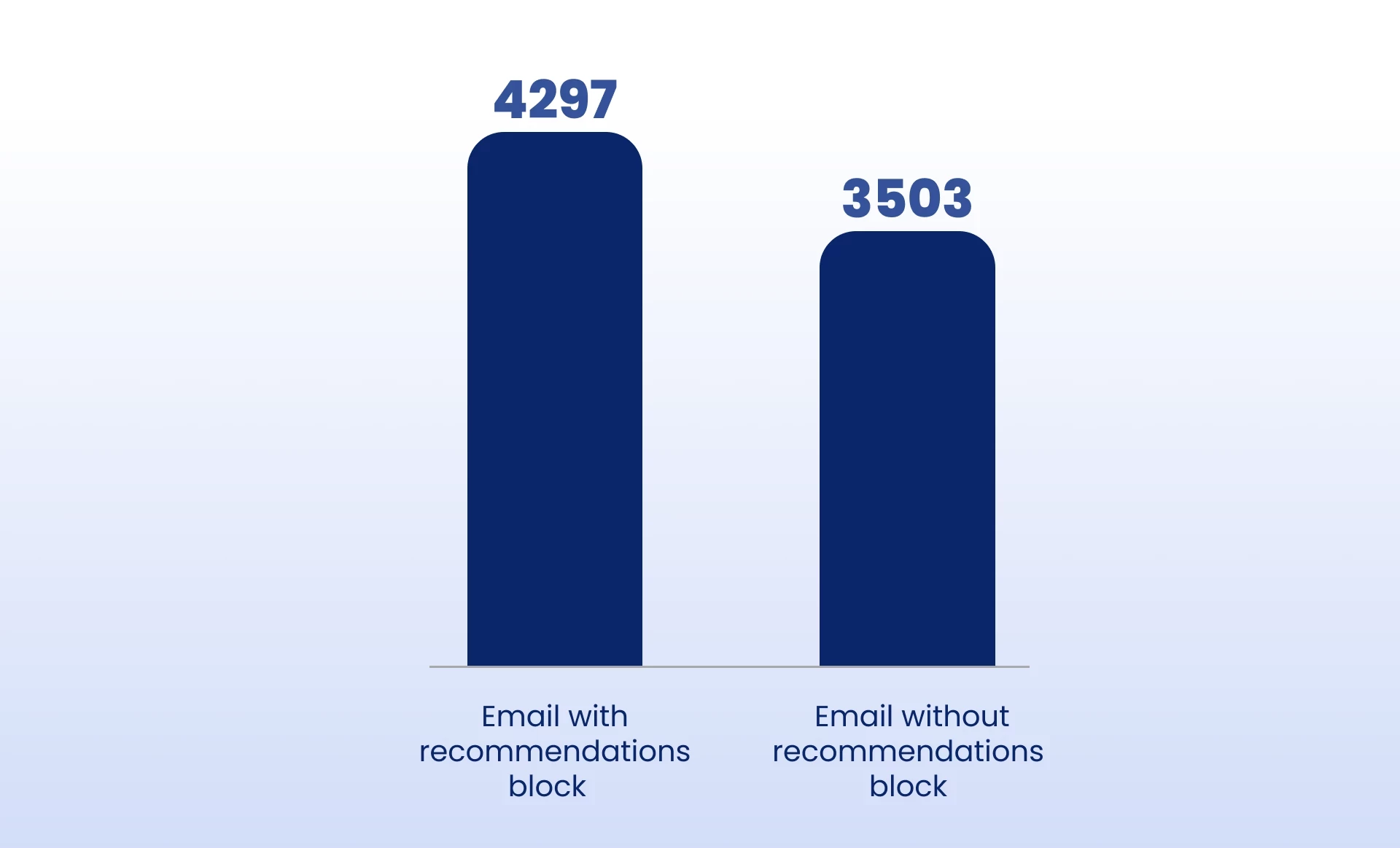
The revenue generated from each email group was the key metric for evaluating the campaign’s effectiveness. And here, personalized recommendations showed the most substantial impact: emails with a recommendation block generated 96.35% more revenue than those without it.
In effect, that’s nearly double the result. A personalized approach doesn’t just boost engagement—it directly drives financial outcomes. That’s why personalization isn’t a decorative element in an email, but a powerful growth lever.
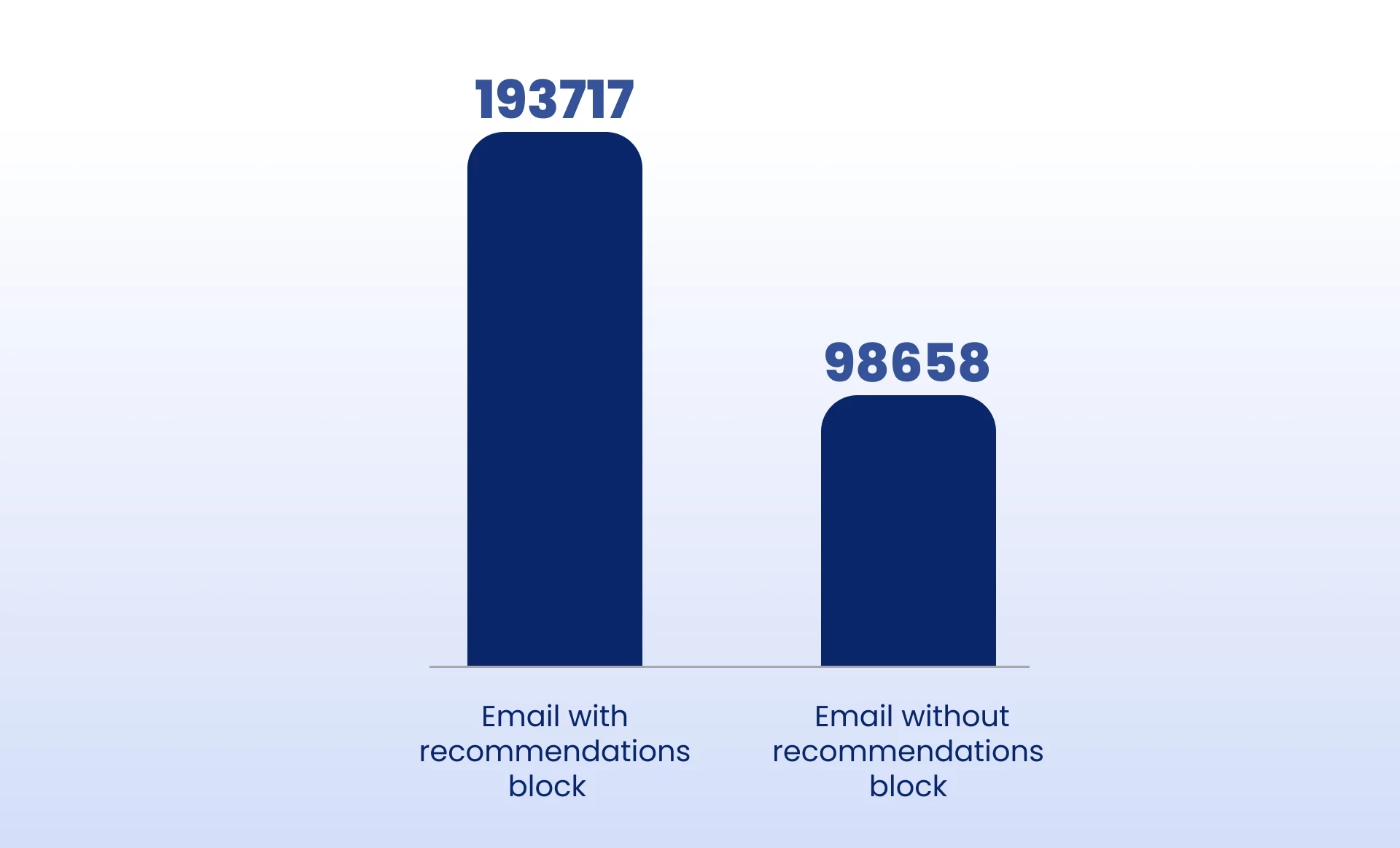
Personalization in triggered emails
IBIS is consistently implementing a personalized approach not only in promotional emails but also in trigger workflows. Together, we set up several behavior-based triggers covering different user journey stages.
Key workflows include:
-
Next Best Offer;
-
Wishlist Item Back in Stock;
-
Price Drop on Viewed Items;
-
Price Drop on Cart Items;
-
Price Drop on Similar Products:
-
from the wishlist;
-
from the views;
-
from abandoned items in the cart.
-
These triggers help bring users back at the moment of highest intent—when the purchase decision is already forming. As a result, the business gains more sales without additional advertising costs.
Want to see how triggers can work for your brand?
Conclusion
More products don’t always mean more value for the user. In an age of information overload, people are increasingly looking not for choice, but for simplicity—less effort, less noise, and a stronger sense that their interests are understood.
Personalized emails work because they relieve some of the user’s burden by saying, “Don’t search—here’s what might be right for you.”
The IBIS case shows that this approach:
-
increases click rate;
-
drives more clicks;
-
raises average order value;
-
nearly doubles revenue from email campaigns.
Yespo’s AI algorithms do more than automate routine tasks. They help marketers deliver truly relevant offers to each subscriber. This is especially important for businesses with a wide assortment and a diverse audience—like IBIS.
To get the most out of personalized recommendations, you must consider your business specifics, segment structure, and behavioral workflows.

